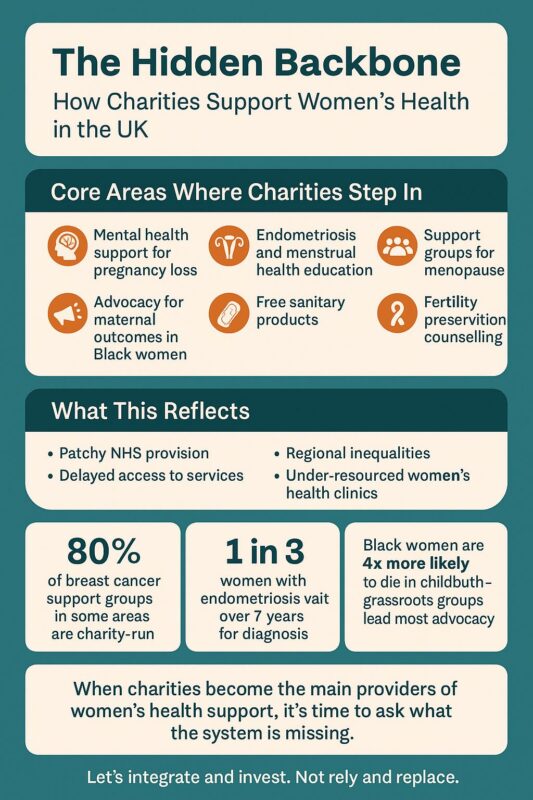
Olubukola Ayodele: Charity Shouldn’t Be a Substitute for Women’s Health Equity
Olubukola Ayodele, Breast Cancer Lead at the University Hospitals of Leicester NHS Trust, shared a post on LinkedIn:
“I recently came across a post celebrating the incredible work being done by charities and Non-Governmental Organisations (NGOs) across the UK, particularly in the area of women’s health. It highlighted initiatives providing support, screening, advocacy and culturally competent care for women who might otherwise fall through the cracks.
My first instinct was admiration. This work is often led by people who see a need and step up, without expectation of recognition or reward. And they deserve all the praise they get.
But another thought followed closely behind.
‘Why is it that we need charities to fill these gaps in the first place?’
At what point did we become comfortable with the idea that essential elements of women’s healthcare, such as access, early diagnosis, culturally sensitive support, and psychological care should be delivered largely through voluntary or third-sector efforts?
The UK is home to one of the world’s most respected publicly funded health systems. Yet, in many areas of women’s health, from endometriosis to maternal mortality, reproductive health to cancer outcomes, what we too often see is a patchwork of provision. If you’re fortunate enough to live in the right postcode, find the right charity, or speak the right language, you might receive excellent, tailored care.
But if not? You risk being overlooked.
This isn’t to downplay the contributions of NGOs, far from it. Many are doing pioneering, impactful work that the system can and should learn from and, most importantly, support.
But we also need to ask: what would it look like for women’s health to be adequately prioritised, funded, and embedded across the NHS, not as an afterthought or add-on, but as a core part of how we define health equity?
I mentioned in one of my previous posts that the UK has now fallen to 41st place in the global women’s health index. That ranking should be a wake-up call.
Because relying on charities to bridge long-standing systemic gaps may signal not just generosity but neglect.
This is not a new conversation. Many working in this space, especially those from underserved communities, have raised these concerns for years. But perhaps now is the time to listen differently. To see charity not as a solution, but as a mirror. A reflection of where the system has left people behind.
And then, to act accordingly.”

More posts featuring Olubukola Ayodele.
-
Challenging the Status Quo in Colorectal Cancer 2024
December 6-8, 2024
-
ESMO 2024 Congress
September 13-17, 2024
-
ASCO Annual Meeting
May 30 - June 4, 2024
-
Yvonne Award 2024
May 31, 2024
-
OncoThon 2024, Online
Feb. 15, 2024
-
Global Summit on War & Cancer 2023, Online
Dec. 14-16, 2023
